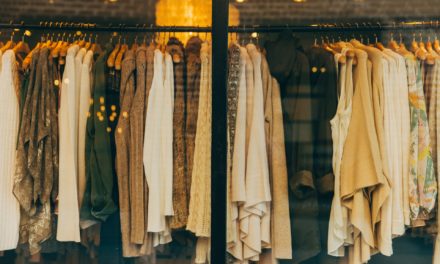[ad_1]
COVID-19 primarily spreads through respiratory droplets from one person to another while breathing. These droplets go into the air when you cough, sneeze, laugh, shout, or sing. Those droplets can land or breathe into the mouths or noses of people close to you.
Masks are an easy shield for preventing the reach of your respiratory droplets. Studies show that masks minimize droplet spraying that can pass through the mouth and nose.
Even if you don't feel ill, you should wear a mask. This is because numerous studies have shown that persons with COVID-19 who never develop (asymptomatic) symptoms and persons who have not yet shown (pre-symptomatic) symptoms will continue to transmit the virus to others. The principal function of wearing a mask is that you are infectious but have no signs to protect those around you.
It is imperative to wear a mask if you cannot remain at least 6 feet apart from others because COVID-19 primarily spreads between people in close contact (within about 6 feet).
Your mask provides you with protection: you. It probably depends on the fabrics used and how your mask is made, how well it protects you from respiration (e.g., the type of fabric, the number of fabric layers, how well the mask fits). It is essential to wear masks when you are going outside.
Who needs to wear a mask?
- Everyone above two years of age and beyond should wear a mask in public.
- Every American should choose to wear a face masks while outdoors or travelling.
- If you're sick with COVID-19 or think that you have COVID-19, wear a mask, even at home, while you have others.
- Centers for Disease Control and Prevention (CDC), USA agrees that there might be a situation where wearing masks is not possible. Consider modifications and alternatives in these cases.
When you go out, apart from wearing masks, one must carry sanitizers when they go out. You know that your hands need to be washed frequently. Your hands make contact with germs, the mouth, eyes, the nose, and several other parts of your body. We hope you already wash your hands many times a day with soap and water. Apart from soap, another essential item is hand sanitizers.
What are the benefits of Hand Sanitizers?
When soap and warm water are not accessible, especially while on the move, hand sanitizers act as a blessing in disguise. Using sanitizers will help you to transmit fewer germs to your own body through body cavities.
CLEANLINESS
This should not come as a shock. One of the key advantages of a hand sanitizer is that it sanitizes the Hand and kills germs. These products have been engineered to destroy germs and keep you infection-free. Hand sanitizers will kill germs when used correctly. CDC recommends that one must use Sanitizer before eating or around animals, garbage, or outside.
PORTABILITY
There won't always be soap and water available outside when you need to wash your hands. Sanitizers are easy to carry and also do the job. The Aloe Vera Hand Sanitizer by Cleanlife360 is a revolutionary product as it is made with a unique no rinse formula. Hence it does not require water and can be used almost every time one comes in contact with unknown surfaces while on the go. Additionally it contains added moisturizers & rare herbs that nourish the skin and make it soft & supple while leaving behind a nice fruity smell. It is all the more advantageous that the Aloe Vera Hand Sanitizer has been scientifically proven to kill 99.99% germs on application.
[ad_2]
Source by Avik Mitra






